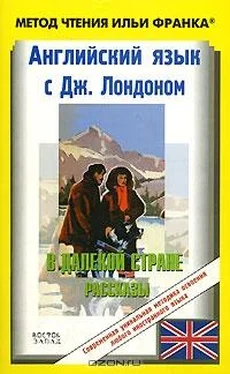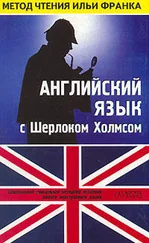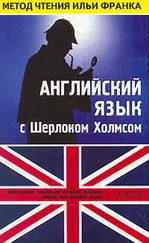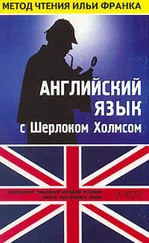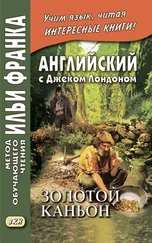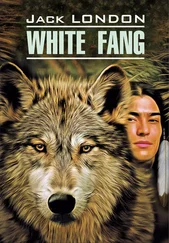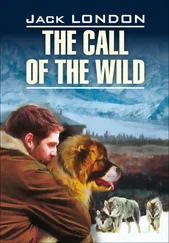arrow ['xrqu], occurrence [q'kAr(q)ns], prophetic [prq'fetIk], pityingly ['pItIINlI]
The next day he went forth along the shore-line where the ice and the land met together. Those who saw him go noted that he carried his bow, with a goodly supply of bone-barbed arrows, and that across his shoulder was his father's big hunting-spear. And there was laughter, and much talk, at the event. It was an unprecedented occurrence. Never did boys of his tender age go forth to hunt, much less to hunt alone. Also were there shaking of heads and prophetic mutterings, and the women looked pityingly at Ikeega, and her face was grave and sad.
"He will be back ere long," they said cheeringly (он вернется скоро, — говорили они сочувственно).
"Let him go (пусть он идет = дайте ему идти); it will teach him a lesson (это научит его уроку)," the hunters said (сказали охотники). "And he will come back shortly (и он вернется скоро), and he will be meek and soft of speech in the days to follow (и он будет кроткий и мягкий в /своей/ речи в последующие дни; to follow — следовать )."
cheering ['CIqrIN], teach [tJC], shortly ['SLtlI]
"He will be back ere long," they said cheeringly.
"Let him go; it will teach him a lesson," the hunters said. "And he will come back shortly, and he will be meek and soft of speech in the days to follow."
But a day passed (но день прошел), and a second (и второй), and on the third a wild gale blew (и на третий /день/ дикий шторм подул; to blow ), and there was no Keesh (а Киша не было). Ikeega tore her hair (Айкига разорвала свои волосы; to tear ) and put soot of the seal-oil on her face in token of her grief (и размазала по лицу сажу /сгоревшего/ тюленьего жира: «положила сажу /сгоревшего/ тюленьего жира на лицо» в знак своей скорби; oil — масло ); and the women assailed the men with bitter words (а женщины нападали на мужчин с горькими словами) in that they had mistreated the boy and sent him to his death (за то, что они плохо обошлись с мальчиком и послали его на смерть); and the men made no answer (и мужчины не отвечали), preparing to go in search of the body when the storm abated (готовясь идти на поиски тела, когда шторм утихнет; to abate — уменьшаться, утихать ).
third [TWd], blew [blH], hair [heq], answer ['Rnsq]
But a day passed, and a second, and on the third a wild gale blew, and there was no Keesh. Ikeega tore her hair and put soot of the seal-oil on her face in token of her grief; and the women assailed the men with bitter words in that they had mistreated the boy and sent him to his death; and the men made no answer, preparing to go in search of the body when the storm abated.
Early next morning, however (ранним утром следующего дня = ранним следующим утром однако), Keesh strode into the village (Киш вошел большими шагами в деревню; to stride — шагать /большими шагами/ ). But he came not shamefacedly (но он пришел не со стыдливым лицом; shame — стыд; face — лицо ). Across his shoulders he bore a burden of fresh-killed meat (на своих плечах он нес тяжесть свежеубитого мяса). And there was importance in his step and arrogance in his speech (и была важность в его поступи и надменность в его речи; arrogance — высокомерие, надменность ).
"Go, ye men, with the dogs and sledges (идите, вы, мужчины, с собаками и нартами), and take my trail for the better part of a day's travel," he said (и возьмите мой след = идите по моему следу несколько дальше, чем один дневной перегон: «на лучшую часть дневного пути», — сказал он). "There is much meat on the ice (там много мяса на льду) — a she-bear and two half-grown cubs (медведица и двое полувзрослых детенышей; cub — детеныш /зверя/ )."
however [hau'evq], shoulder ['Squldq], burden [bWdn]
Early next morning, however, Keesh strode into the village. But he came not shamefacedly. Across his shoulders he bore a burden of fresh-killed meat. And there was importance in his step and arrogance in his speech.
"Go, ye men, with the dogs and sledges, and take my trail for the better part of a day's travel," he said. "There is much meat on the ice — a she-bear and two half-grown cubs."
Ikeega was overcome with joy (Айкига была обрадована: «была переполнена радостью»), but he received her demonstrations in manlike fashion (но он принял ее восторги по-мужски: «в мужской манере»), saying: "Come, Ikeega, let us eat (говоря: пойдем, Айкига, давай поедим). And after that I shall sleep (а после этого я буду спать), for I am weary (потому что я утомлен; weary — усталый, утомленный )."
And he passed into their igloo and ate profoundly (и он проследовал в их иглу и поел основательно/сытно; profound — глубокий; основательный ), and after that slept for twenty running hours (и после этого спал двадцать часов подряд; to run — бежать; идти, продолжаться, длиться /о времени/ ).
fashion ['fxS(q)n], weary ['wIqrI], hour ['auq]
Ikeega was overcome with joy, but he received her demonstrations in manlike fashion, saying: "Come, Ikeega, let us eat. And after that I shall sleep, for I am weary."
And he passed into their igloo and ate profoundly, and after that slept for twenty running hours.
There was much doubt at first (было много сомнений сначала), much doubt and discussion (много сомнений и споров). The killing of a polar bear is very dangerous (убийство полярного медведя очень опасно), but thrice dangerous is it (но трижды опаснее), and three times thrice (и три раза трижды опаснее), to kill a mother bear with her cubs (убить медведицу с детенышами). The men could not bring themselves to believe (мужчины не могли заставить себя поверить ; to bring somebody to do something — заставлять, вынуждать, убеждать ) that the boy Keesh, single-handed (что мальчик Киш, совсем один), had accomplished so great a marvel (совершил такое великое чудо; marvel — чудо, диво; to accomplish — выполнять, завершать ). But the women spoke of the fresh-killed meat he had brought on his back (но женщины говорили о мясе только что убитого медведя = о свежеубитом мясе, /что/ он принес на своей спине), and this was an overwhelming argument (и это был подавляющий аргумент; to overwhelm — /уст./ переворачивать кверх ногами; подавлять, сокрушать ) against their unbelief (против их неверия). So they finally departed (поэтому они наконец отправились), grumbling greatly that in all probability (ворча сильно, что, по всей вероятности), if the thing were so (если все так и было), he had neglected to cut up the carcasses (он забыл разделать тушу: «разрезать костяк»). Now in the north it is very necessary (дело в том, что на севере очень важно; now — теперь, сейчас; так вóт ) that this should be done as soon as a kill is made (чтобы это было сделано сразу, как только зверь убит: «как только убийство сделано»). If not (если нет), the meat freezes so solidly (мясо замерзает так крепко) as to turn the edge of the sharpest knife (что сопротивляется лезвию самого острого ножа; to turn — поворачивать ), and a three-hundred-pound bear (а трехсотфутовый медведь), frozen stiff (замерзший крепко), is no easy thing to put upon a sled and haul over the rough ice (является нелегкой вещью, чтобы положить на нарты и тащить по неровному льду; to haul — тащить, тянуть, волочить; rough — грубый; неотделанный, необработанный; неровный ). But arrived at the spot (но, прибыв на место), they found not only the kill (они нашли не только убитых /медведей/), which they had doubted (в чем они сомневались), but that Keesh had quartered the beasts in true hunter fashion (но и то, что Киш рассек туши на четыре части в лучшей манере охотников), and removed the entrails (и удалил внутренности).
Читать дальше
